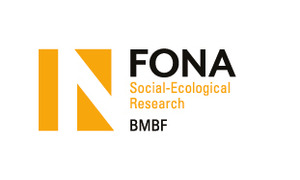In their article, the authors outline connecting points and differences between the Platform Cooperativism Movement and the Free/Libre-and-Open-Source-Software(FLOSS) Movement and examine the potential of cross-movement initiatives for a more social and ecological shaping of the platform economy. Both movements have in common the focus on transparency, opportunities for participation and criticism of commercial platforms. While social-ecological values are central for Platform Cooperativism, the FLOSS movement mainly focuses on the aspect of completely free availability of code. From a social-ecological perspective, this raises the conflict that Free Software is also available to commercial platform actors. The authors consider it necessary that, firstly, platform operators become aware of how software code influences platformization and, secondly, that non-proprietary licenses are improved in a way that links rights of use with socio-ecological criteria.
+++++
In ihrem Gastbeitrag auf netzpolitik.org beleuchten Santje Kludas, Jonas Pentzien und Clara Wolff von platforms2share am IÖW gemeinsam mit Dominik Piétron von der Humboldt Universität zu Berlin, inwiefern genossenschaftliche Organisation und Verwendung freier Software Möglichkeiten für eine sozial-ökologische Plattformisierung bieten.
In dem Beitrag „Bits & Bäume: Alle Macht den Plattformen?“ skizzieren die AutorInnen Anknüpfungspunkte und Unterschiede der Bewegung des Plattform Kooperativismus und der Free-/Libre-and-Open-Source-Software(FLOSS) Bewegung und untersuchen das Potentiale von bewegungsübergreifenden Initiativen für eine sozialere und ökologischere Gestaltung der Plattformökonomie. Beiden Bewegungen gemein ist der Fokus auf Transparenz, Mitgestaltungsmöglichkeiten und die Kritik an kommerziellen Plattformen. Während für den Plattform Kooperativismus sozial-ökologische Werte zentral sind, steht für die FLOSS Bewegung vor allem der Aspekt der komplett freien Verfügbarkeit von Code im Mittelpunkt. Das wirft aus sozial-ökologische Perspektive den Konflikt auf, dass Freie Software auch kommerziellen Plattform Akteuren zur Verfügung steht. Die AutorInnen erachten es für notwendig, dass sich erstens Plattformbetreibende den Einfluss von Softwarecode auf Plattformisierung bewusstmachen, und zweitens eine Verbesserung nicht-proprietärer Lizenzen stattfindet, so dass eine Kopplung der Nutzungsrechte an sozial-ökologische Kriterien möglich wird.
Reference/ Literaturhinweis:
Kludas, S. / Pentzien, J. / Wolff, C./ Piétron, D. (2019) Bits & Bäume: Alle Macht den Plattformen? Gastbeitrag auf netzpolitik.org. Online: https://netzpolitik.org/2019/bits-baeume-alle-macht-den-plattformen/
15/08/2019


